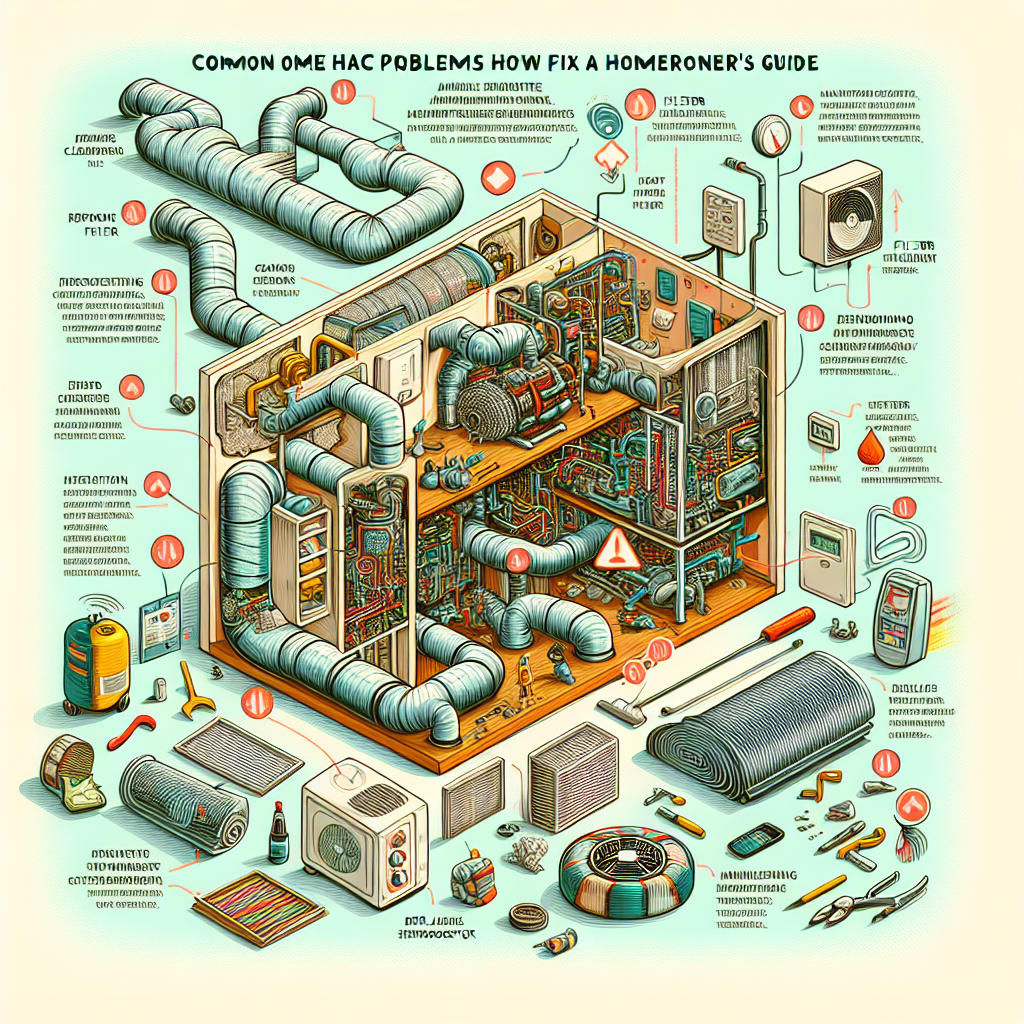Common Home HVAC Problems and How to Fix Them: A Homeowner’s Guide
Introduction
Welcome to the wild world of home HVAC systems, where temperatures can swing from ice-cold to sauna-hot faster than you can say “residential HVAC repair.” Whether you’re dealing with a furnace that sounds like it’s auditioning for a horror movie or an air conditioning unit that seems to have taken an extended vacation, you’re not alone. Many homeowners face HVAC issues that can leave them feeling frustrated and overwhelmed.
But fear not! This guide is your trusty sidekick in navigating the maze of home HVAC repair. From understanding how your heating and cooling systems work to diagnosing common problems, we’ve got you covered. Think of this as your go-to manual for everything related to residential HVAC services.
In the pages ahead, we’ll dive into common HVAC problems and arm you with practical solutions. Whether it’s a pesky thermostat repair or a full-blown emergency HVAC repair situation, knowing what to do can save you time, money, and a whole lot of stress. So grab your toolbelt (or at least your phone), and let’s get started on transforming your home into a comfortable oasis!
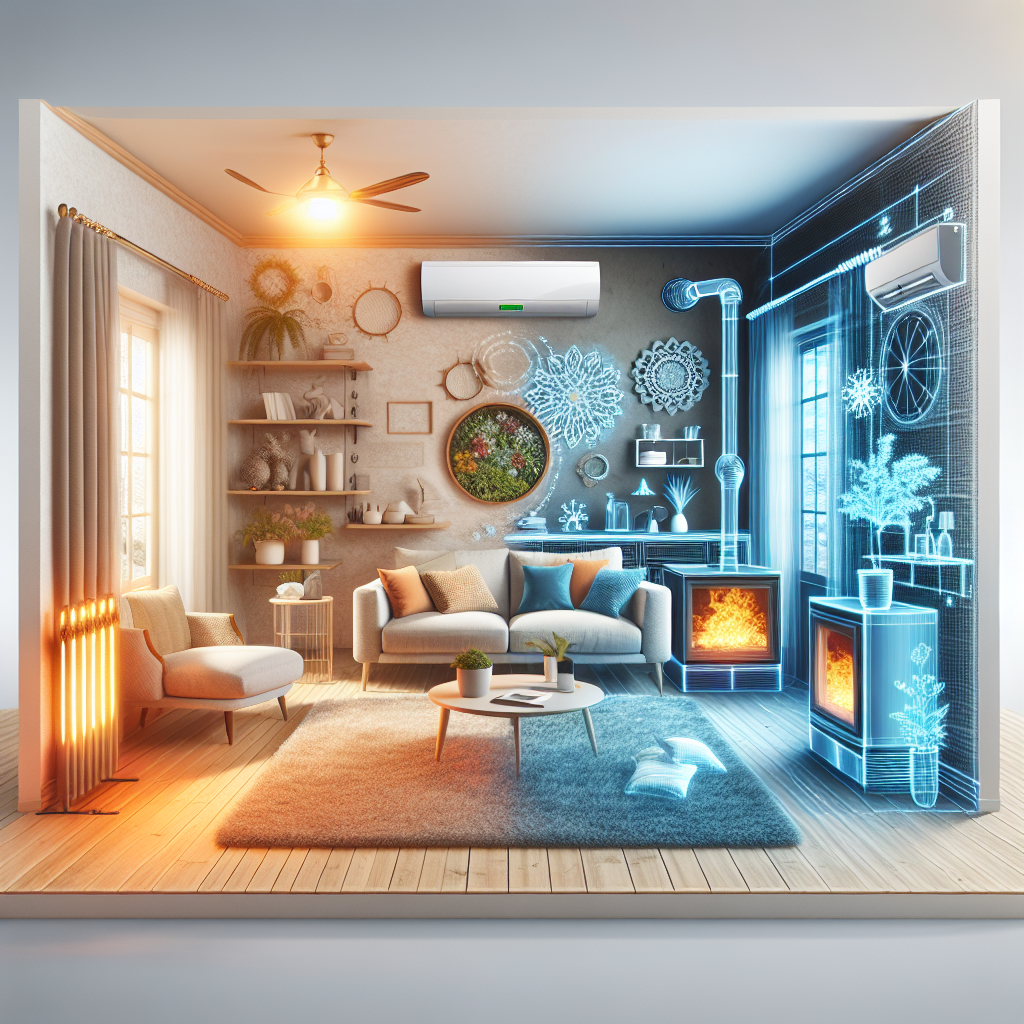
Understanding Your HVAC System
Alright, let’s break down the magical world of your home’s HVAC system. Think of it as the brain of your indoor climate, tirelessly working to keep you comfy, no matter what Mother Nature throws at you. Whether it’s sweltering heat or frigid cold, your HVAC system is the unsung hero of residential climate control solutions.
Components of an HVAC System
Your HVAC system is made up of several key components that work together like a well-choreographed dance. Here’s a quick rundown:
- Furnace: The powerhouse for heating during those chilly winter nights.
- Air Conditioner: Your best friend in summer, keeping things cool and breezy.
- Heat Pump: A versatile option that can both heat and cool your home.
- Ductwork: The highways through which air travels to reach every nook and cranny.
- Thermostat: The control center where you dictate the temperature like a mini-God for your home!
How HVAC Systems Work
Your HVAC system works by circulating air throughout your home using a series of ducts and vents. In simpler terms, it takes the air from outside (or inside if you’re recycling), conditions it, and then sends it back out to ensure every room has just the right temperature. It’s like having a personal weather station that never takes a day off!
Importance of Regular Maintenance
If you want to avoid costly residential HVAC repair down the line, regular maintenance is key. Think of it as giving your system a check-up just like you would for yourself! Regular maintenance includes:
- Seasonal HVAC maintenance: Ensuring everything runs smoothly before peak seasons hit.
- Cleaning filters: Keeping airflow unobstructed and improving indoor air quality solutions.
- Ductwork inspection: Making sure there are no blockages or leaks that could waste energy.
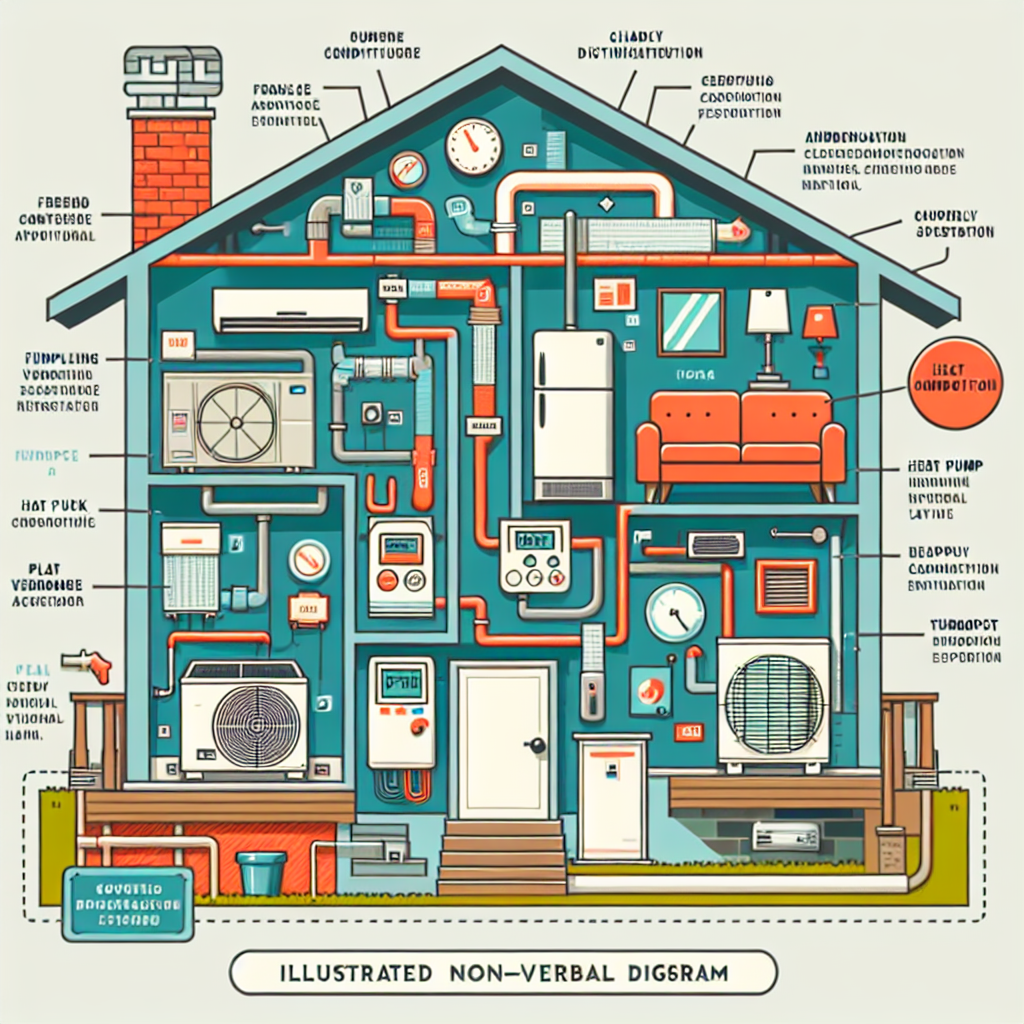
Common HVAC Problems
Every homeowner knows that HVAC systems can be as temperamental as a cat on a rainy day. When they work, life is good; when they don’t, it’s a whole different story. Let’s dive into some of the most common HVAC problems you might encounter and how to tackle them like a pro!
Heating System Issues
When winter hits, the last thing you want is your heating system throwing in the towel. Common culprits include:
- Thermostat Troubles: If your thermostat is on the fritz, your heating system might not know when to kick in.
- Clogged Filters: Dirty filters can choke your furnace, causing it to overheat and shut down.
- Pilot Light Problems: If you have a gas furnace, a pilot light that won’t stay lit can leave you out in the cold.
Air Conditioning Failures
A hot summer day and an AC unit that’s decided to take a vacation? Not cool! Here’s what could be going wrong:
- Refrigerant Leaks: Low refrigerant levels can lead to poor cooling performance.
- Electrical Failures: Faulty wiring or tripped breakers can leave your AC powerless.
- Dirt and Debris: A dirty condenser coil can prevent effective heat exchange, leading to less cooling power.
Thermostat Malfunctions
Your thermostat is like the captain of your HVAC ship. If it’s not functioning properly, prepare for some rough waters. Symptoms include:
- No Response: If adjusting the temperature doesn’t yield results, it might be time for thermostat repair or replacement.
- Error Messages: Some digital thermostats will let you know what’s wrong like having a personal assistant!
Ductwork Problems
If your ducts are damaged or poorly insulated, you could be losing precious heated or cooled air faster than you can say “home HVAC repair.” Look out for:
- Duct Leaks: Air escaping from holes means less efficiency and higher energy bills.
- Poor Insulation: Uninsulated ducts in unconditioned spaces can lead to temperature drops before air even reaches your living room.
Noisy HVAC Systems
If your HVAC system sounds like it’s auditioning for a horror movie, it might be trying to tell you something! Common noises include:
- Banging or Clanking: This could indicate loose parts definitely not something you’d want in your home!
- Squealing or Whistling: These sounds may point toward belt issues or air leaks in ductwork.
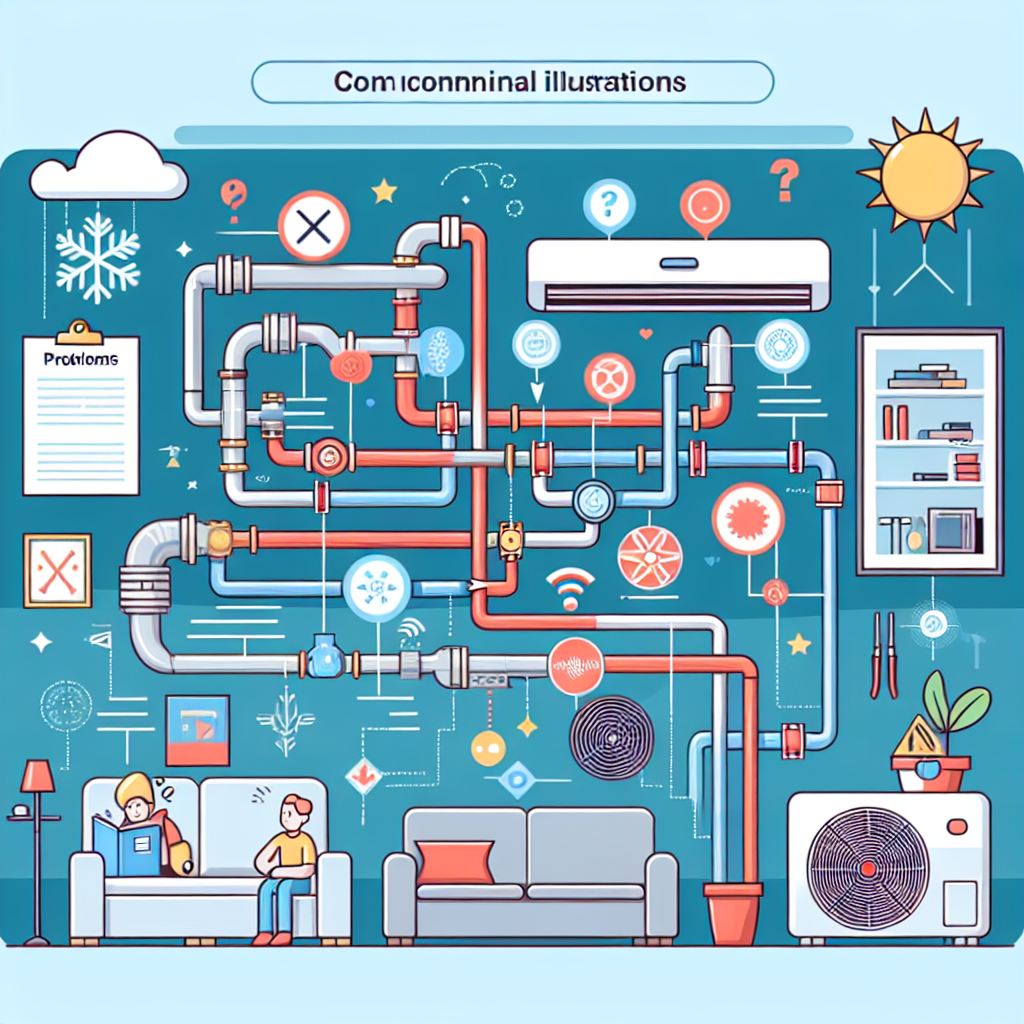
Schedule an inspection with local HVAC contractors today!
Troubleshooting Tips for Homeowners
When your HVAC system starts acting like a moody teenager, it can be frustrating. But before you call in the big guns for residential HVAC repair, there are some basic troubleshooting steps you can take to potentially save yourself time and money.
Basic Troubleshooting Steps for Heating and Cooling Issues
- Check Your Thermostat: Ensure it’s set to the correct mode (heating or cooling) and that the temperature is set properly. Sometimes it’s just a case of user error!
- Inspect Your Filters: Dirty air filters can choke your system. Replace them regularly to keep things running smoothly.
- Look for Blocked Vents: Make sure furniture or curtains aren’t blocking airflow. Think of your vents as the lungs of your HVAC system let them breathe!
- Examine Your Circuit Breaker: A tripped breaker could be the reason your system is down. Reset it and see if that does the trick.
When to Call a Professional for Residential HVAC Repair
If you’ve tried the above steps and your heating or cooling issues persist, it might be time to call in the pros. Here are signs you shouldn’t ignore:
- You hear strange noises like clanking, buzzing, or hissing that make you question whether your HVAC is auditioning for a horror movie.
- Your energy bills have skyrocketed without explanation it’s like they’re on a diet plan that’s not working!
- Your home has uneven temperatures; one room feels like an icebox while another feels like a sauna.
- The system runs continuously without reaching the desired temperature this is not how it’s supposed to work!
Signs of Potential Issues in Your HVAC System
Keep an eye out for these warning signs:
- Unpleasant odors: This could indicate mold or burnt wires.
- Increased humidity indoors: This may suggest that your AC isn’t dehumidifying properly.
- Frequent cycling on and off: This could signal an issue with the thermostat or compressor.
- Poor indoor air quality: If you notice more dust settling on surfaces, it might be time for ductwork repair or cleaning.
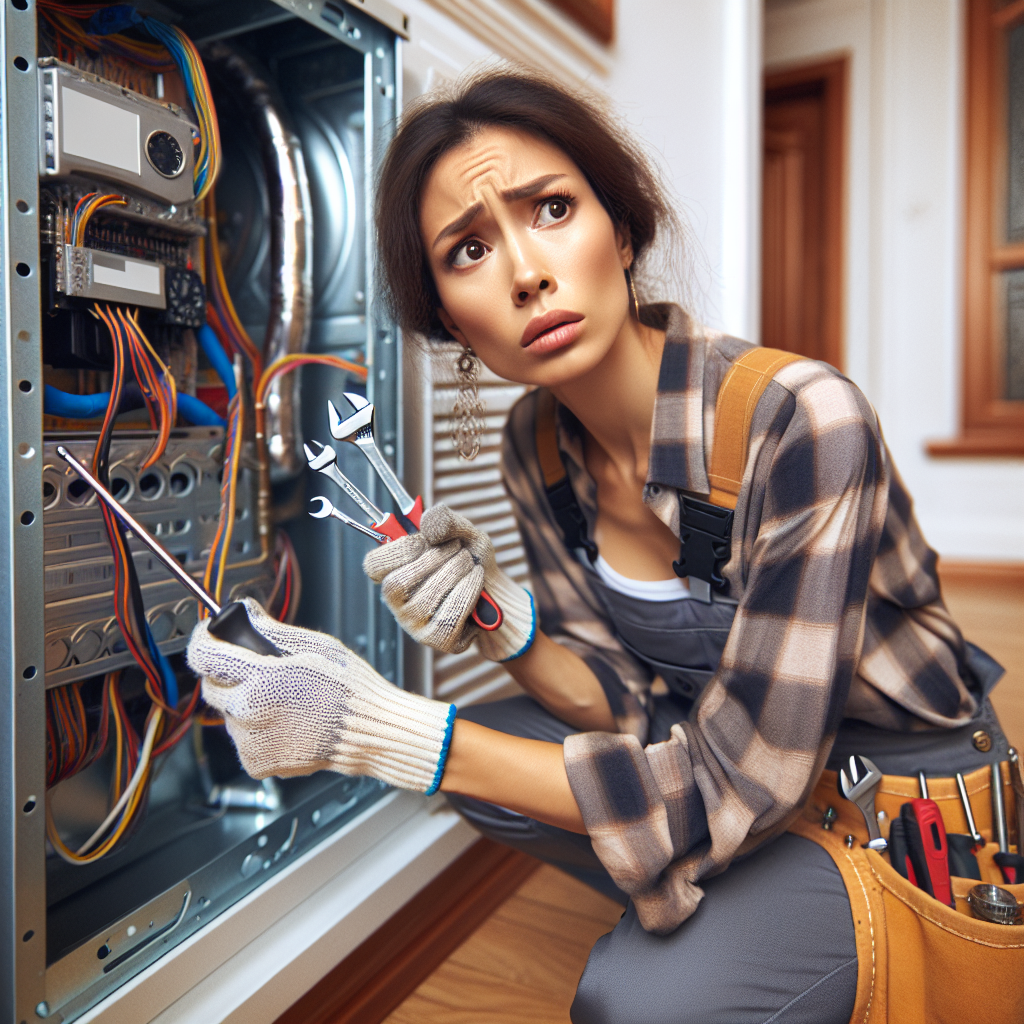
Troubleshooting your HVAC system can feel daunting, but with these tips, you’ll be better equipped to tackle common issues before they escalate into costly repairs. Remember, if in doubt don’t hesitate to reach out to local HVAC contractors who can provide reliable home heating repairs when you need them most!
DIY Fixes for Common Problems
When it comes to HVAC issues, some problems can feel as daunting as a boss level in a video game. But fear not! With the right tools and a little know-how, you can tackle many common issues without having to call in the cavalry. Here’s your guide to some straightforward residential HVAC repair fixes that’ll have you feeling like a pro!
Straightforward Repairs You Can Handle Yourself
- Clogged Filters: Dirty filters are like that friend who just won’t stop talking clogging up the flow! Change or clean your air filters every 1-3 months to ensure optimal airflow and efficiency.
- Thermostat Troubles: If your thermostat isn’t responding, try replacing the batteries first. If it still doesn’t work, check the wiring connections loose wires can be a sneaky culprit!
- Drain Line Blockages: If water is pooling around your AC unit, it might be time for some DIY drain line cleaning. Use a wet/dry vacuum to clear out any gunk clogging up the line.
How to Maintain Your AC and Heating Systems Regularly
Your HVAC system is like a car it needs regular maintenance to run smoothly! Here are some easy tasks you can do:
- Inspect Ductwork: Check for any visible tears or disconnects in your ductwork. A little duct tape can go a long way in sealing those pesky leaks.
- Clean the Outdoor Unit: Keep the area around your outdoor unit clear of debris. A clean unit is an efficient unit!
- Test Your System Seasonally: Before summer hits, run your AC for a bit; likewise, test your heating system before winter arrives. This way, you can catch potential issues early on.
Tips for Seasonal HVAC Maintenance Tasks
The changing seasons are not just great for pumpkin spice lattes; they’re also prime time for HVAC maintenance! Here’s what to keep in mind:
- Spring Cleaning: After winter hibernation, give your heating system a thorough checkup. Clean out any dust and ensure everything is functioning properly.
- Fall Preparation: Before temperatures drop, schedule an inspection for your heating system. This proactive step can save you from emergency HVAC repair later on!
- Avoid Overworking Your System: During high-demand seasons (hello summer!), keep blinds closed during peak sunlight hours to reduce strain on your AC.
If all else fails and you’re still facing issues that make you want to pull your hair out, don’t hesitate to reach out for professional help from local HVAC contractors. They have the expertise and experience needed for more complex repairs!
The Importance of Professional Services
When it comes to keeping your home comfortable, professional services are like the secret sauce in your favorite recipe. Sure, you can try to whip up a meal on your own, but sometimes you need a master chef to ensure everything is cooked to perfection. The same goes for your HVAC system!
- The Role of Licensed HVAC Technicians in Repairs and Maintenance: Licensed HVAC technicians are trained professionals who understand the ins and outs of residential HVAC repair. They don’t just know how to fix things; they know how to diagnose problems before they become major headaches. Think of them as the superheroes of home heating and cooling services ready to swoop in and save the day!
- Benefits of Emergency HVAC Repair Services: Imagine it’s a scorching summer day, and suddenly your air conditioning decides to take an extended vacation. Panic sets in! This is where emergency HVAC repair services come into play. With a quick call, you can access 24/7 HVAC service near you, ensuring that you’re never left sweating it out for long.
- Choosing Reliable Local HVAC Contractors in Lehigh Valley: Not all heroes wear capes some wield wrenches! When selecting local HVAC contractors, look for those with solid reputations and glowing reviews. A reliable contractor will provide same-day HVAC service when needed and ensure that every repair be it furnace repair or ductwork repair is done right the first time.
Takeaway: Investing in professional residential HVAC services not only saves you time and stress but also extends the life of your system while keeping your indoor air quality top-notch!
So before you dive into DIY repairs or let that minor issue fester into a full-blown crisis, remember: calling in the pros isn’t just smart; it’s essential for maintaining a comfy home environment.
Energy-Efficient Solutions for Your Home HVAC System
When it comes to keeping your home comfortable, energy-efficient solutions for your HVAC system are like the cherry on top of a sundae they make everything better! Not only do they help you save on energy bills, but they also contribute to a greener planet. So, let’s dive into some smart strategies that can transform your residential HVAC system into an eco-friendly powerhouse!
Upgrading to Energy-Efficient Models: What You Need to Know
If your furnace or air conditioning unit is older than your favorite pair of jeans, it might be time for an upgrade. Modern energy-efficient models can reduce energy consumption by up to 50%. Look for units with the ENERGY STAR label it’s like a gold star for efficiency!
- Heat Pumps: These versatile systems can both heat and cool your home, making them an excellent choice for year-round comfort.
- Smart Thermostats: These nifty gadgets learn your schedule and adjust temperatures accordingly, ensuring you’re not heating or cooling an empty house.
- Variable Speed Air Handlers: They adjust airflow based on demand, providing consistent comfort while using less energy.
The Impact of Indoor Air Quality Solutions on Comfort and Health
Your HVAC system doesn’t just control temperature; it also plays a crucial role in maintaining indoor air quality (IAQ). Poor IAQ can lead to health issues and discomfort. Here’s how you can enhance it:
- Air Filters: Regularly replacing filters ensures that dust, allergens, and pollutants don’t circulate in your home.
- Ventilation Systems: Proper ventilation helps reduce humidity levels and brings in fresh air, which is vital for maintaining good IAQ.
- Humidity Control: Dehumidifiers or humidifiers can help maintain optimal humidity levels between 30-50%, which is ideal for comfort and health.
Tangible Takeaway: Investing in indoor air quality solutions not only boosts comfort but also reduces the need for frequent home HVAC repairs by preventing dust buildup and improving system efficiency.
The Role of Eco-Friendly Heating and Cooling Options for Homes
If you’re looking to go green (and save some green), consider these eco-friendly heating and cooling options:
- Solar Panels: Harnessing solar energy can significantly decrease reliance on traditional power sources, cutting down on utility bills.
- Geothermal Systems: These systems use the earth’s stable temperature to heat and cool homes efficiently. They may have higher upfront costs but pay off in the long run!
- Biodiesel Heating Systems: If you’re feeling adventurous, biodiesel systems use renewable resources to provide heating without the carbon footprint of traditional fuels.


